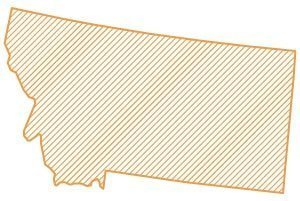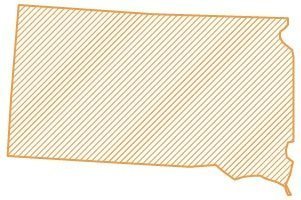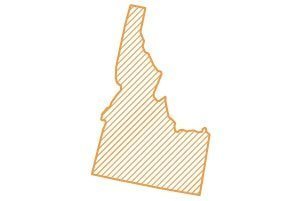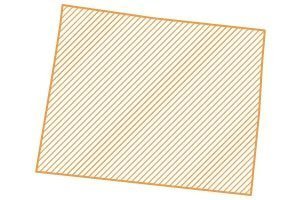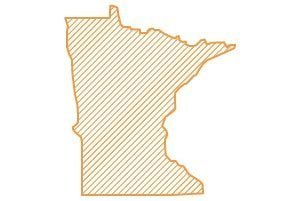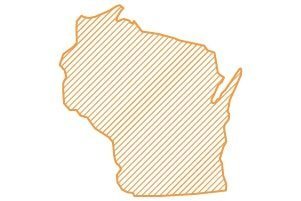The favorite state of former President Theodore Roosevelt, North Dakota is full of history and beautiful wildlife. If you call the Peace Garden State home and want to help the residents of this fine state live a better life, becoming an MFT in North Dakota may be for you. Read more about Marriage and Family Programs in this article to help you get started on this rewarding career.
People who work as Marriage and Family Therapists (MFTs) are licensed and certified counselors. They undergo specialized training to work with individuals, couples, and families. Marriage and Family Therapy specifically treats the relationship dynamics in a person’s life and helps them to improve their relationships.
Our relationships significantly impact our mental health, and because of this, Marriage and Family Therapy is a rapidly growing field. As healthcare reforms created more coverage for mental health issues, more people could receive treatment they could not previously afford. There is an increasing demand for Mental Health Counseling of different types.
If you are considering embarking on a Marriage and Family Therapist career in North Dakota, we will show you programs to help you achieve this goal.
Online MFT Programs in North Dakota
There are many nationwide online programs that North Dakota residents can take part in. North Dakota students can complete their Master’s Degree in Marriage and Family Therapy from the comfort of their home computer.
Online programs offer great flexibility, making them ideal for working students or those with other commitments. Colleges and universities offer online programs through both synchronous and asynchronous learning methods. Ensuring the program is flexible enough to meet your individual needs is important. It is also essential to consider the program’s cost when deciding to enroll.
Here is a list of FULLY online programs that North Dakota residents can take advantage of:
- Alliant International University: offers both a Master of Arts and a Doctorate (Psy.D.) in Marriage and Family Therapy. AIU offers these programs in person at one of their California campuses or completely online.
- Indiana Wesleyan University: This Christian university offers a 60 credit Master of Arts in Marriage and Family Therapy. 300 hours of clinical experience is required and they utilize video recordings in order to assess student counseling work.
- University of Wisconsin- Superior: offers a 100% online Masters in Counseling with Marriage and Family Therapy track. The program is designed to prepare students to become licensed marriage and family therapists (LMFTs) by passing the national exam.
- Loma Linda University: offers an online Master of Science in Marriage and Family Therapy (MSMFT) program that utilizes both synchronous and asynchronous learning while all practicum hours are completed in person local to the student.
Accredited MFT Programs in North Dakota
North Dakota COAMFTE Accredited MFT Programs
The Commission on Accreditation for Marriage and Family Therapy Education is a national accrediting body for marriage and family therapy programs. The programs that COAMFTE accredits meet high-quality standards and are recognized by state and national professional organizations.
While there is no COAMFTE accredited program in North Dakota, there is one university in the nearby state of Nebraska that is. Listed below are some critical components of the program at the University of Nebraska-Lincoln:
- University of Nebraska – Lincoln, Master of Science in Marriage and Family Therapy
- 53 total credit hours
- On-campus training at the UNL’s Family Resource Center
- Utilizes a cohort model of 8-12 students per cohort
- Completed in 24 months
- COAMFTE-accredited
CACREP Accredited Marriage and Family Therapy Programs in North Dakota
The CACREP-accreditation can apply to both general and specialized counseling degree programs. CACREP stands for the Council for Accreditation of Counseling and Related Educational Programs. It is a non-profit, non-governmental organization that accredits counseling programs in the United States and Canada. CACREP accreditation is voluntary, but many state and national professional organizations recognize it.
CACREP accreditation is a valuable asset for counseling programs. It demonstrates to students, employers, and the public that the program meets high-quality standards. CACREP accreditation can also make it easier for graduates to obtain licensure and employment.
There are two schools with CACREP-accredited programs in North Dakota:
- North Dakota State University:
- School Counseling
- Clinical Mental Health Counseling
- Counselor Education and Supervision
- University of Mary:
- School Counseling
- Clinical Mental Health Counseling
No GRE Required MFT Programs in North Dakota
A standardized test called the Graduate Record Exam (GRE) is sometimes required for admission into graduate-level programs. However, many colleges and universities today no longer require standardized admission tests. You can find Marriage and Family Therapy programs that do not require the GRE for admission. Consequently, some programs may require it only under certain circumstances.
There is two counseling programs in North Dakota that do not require the GRE for admission:
- North Dakota State University: Master of Science in Counselor Education with a specialization in School Counseling or Clinical Mental Health Counseling.
The requirements for admission are:- A completed graduate application
- A minimum undergraduate GPA of 3.0 or higher on a 4.0 scale
- Personal and Professional References
- A detailed statement of purpose
- University of Mary: Master of Science in Counseling with a concentration in Clinical Mental Health Counseling.
The admissions requirements are:- A completed graduate application
- A minimum undergraduate GPA of 3.0 or higher on a 4.0 scale
- Resume
- Two Professional Recommendations
- Statement of Purpose
- Ethical Case Study Writing Assessment
- In-person Interview
What Will You Learn in a North Dakota MFT Program?
North Dakota MFT programs prepare students to become socially proficient marriage and family therapists by integrating the principles of social justice and diversity throughout all courses and clinical work. MFT programs train students to apply knowledge of systemic principles, theories, and research to practice with individuals, couples, and families. With this training, you can begin a marriage and family therapy career working with a diverse client population.
Topics covered in MFT coursework includes:
- Assessment and diagnosis
- Diversity training
- Group counseling techniques
- Family and couples dynamics
- Substance Abuse
- Ethics and Professional Standards
- Counseling theory
- Research and evaluation
Students in a North Dakota MFT program will be able to:
- Demonstrate the knowledge and skills necessary for competent ethical practice
- Demonstrate skills, knowledge, and awareness to counsel within a diverse society
- Describe and explain the process of change as expressed by individual and family counseling theories across the lifespan
- Identify and describe theories and models of career development, counseling, and decision-making
- Demonstrate essential interviewing, counseling, and conceptualizing skills
- Identify and apply approaches used for various types of group work
- Demonstrate knowledge of the basic concepts of standardized testing and other assessment techniques
- Discern evidence-based counseling practices
- Demonstrate knowledge and skills in conceptualizing and treating marriage, couple, and family counseling.
In addition to coursework, students in MFT programs must complete both practicum and internship hours where they work with clients under the supervision of a professor and professional MFT. This experience is necessary for students to gain understanding and practice as a therapist but is also a requirement to sit for the licensing exam.
After completing an MFT program in North Dakota, students are eligible to sit for the national licensure examination for MFTs. Once they have passed the test, they can become licensed MFTs.
How To Become a Fully-Licensed MFT in North Dakota:
In North Dakota, there are two types of licenses for Marriage and Family Therapists. You first need to apply to be licensed as an Associate MFT. Then, after you have your Associate’s license and complete additional requirements, you can apply for your full Marriage and Family Therapist License. The North Dakota Marriage and Family Therapist Licensing Board oversees all MFT license applications. Their purpose is to ensure the professionalism and ethical standards of MFT’s are adhered to in the state of North Dakota.
Here are the steps on how to become a Licensed Marriage and Family Therapist (LMFT) in North Dakota:
- Complete a Master’s or Doctoral degree in Marriage and Family Therapy or a related field.
- Provide an official transcript as evidence of completing a master’s or doctoral degree from an accredited Marriage and Family Therapy program.
- Apply for the Associate MFT License
- Pass the National Exam for Marital and Family Therapy created by the AMFTRB.
- Complete 3,000 hours of supervised clinical experience.
- Pass the North Dakota state exam.
- Complete application for full LMFT license.
- Renew your license every two years.
Step 1: Complete a Master’s or Doctoral Degree in Marriage and Family Therapy or a related field.
Here is where you will gain the necessary skills and knowledge to become a helpful counselor. It is imperative to attend an educationally sound program. Finding a program that is either COAMFTE or CACREP accredited is the best way to ensure you are getting a quality education that will thoroughly prepare you to work as a MFT in North Dakota.
Completing a degree from an MFT program will give you the knowledge and experience necessary to pass the National MFT exam and begin a rewarding career as an MFT in North Dakota.
Step 2: Apply for the North Dakota Associate MFT License.
Applications are submitted through the North Dakota Marriage and Family Therapist Licensing Board website. New applications cost $180 and there are discounts for active military members available.
Step 3: Pass the National Exam for Marriage and Family Therapists.
The NMFTE exam is facilitated by the Association of Marital and Family Therapy Regulatory Boards. It is a national exam that all LMFTs must pass to be licensed.
The exam is a multiple-choice format that tests your knowledge of MFT theory, assessment, and intervention. You must score at least 75% on the exam to pass. They offer four testing sessions per calendar year.
Step 4: Complete 3,000 hours of supervised clinical experience.
The Licensing Board requires that the hours are completed within two calendar years and that 1,500 hours are direct clinical contact and at least 200 hours are under direct supervision of a LMFT.
Step 5: Pass the North Dakota State Exam.
Once completing the national exam and the supervised experience, applicants can sit for the ND state exam.
Step 6: Complete the application for a full Marriage and Family Therapy License.
The application is found on the NDMFTLB website and cost is $450.
Step 7: Renew your license every 2 years.
Fully Licensed MFTs in North Dakota must renew their MFT licenses every two years. In addition to renewing their license, MFTs must complete 30 hours of Continuing Education Credits and provide evidence of this in their application. This requirement ensures that MFTs in North Dakota keep up to date with the latest research and best practices in the discipline.
Career and Salary Opportunities for LMFTs in North Dakota
Marriage and family therapy is growing, and many career opportunities are available for MFTs in North Dakota. Here, we will discuss some of the different career paths that MFTs can take and the average salary for MFTs in North Dakota.
Career Opportunities for MFTs
There are many different career paths available for MFTs in North Dakota. Some of the most common career paths include:
- Private practice: Licensed MFTs can open their private practices and see clients individually, couples, or families.
- Inpatient and outpatient mental health facilities: MFTs can work in inpatient and outpatient mental health facilities, providing therapy to individuals, couples, and families.
- Substance Abuse and Addiction Treatment Facilities.
- Schools: MFTs can work in schools, providing therapy to students and their families.
- Community-based non-profit organizations: MFTs can work in community mental health centers, providing therapy to individuals, couples, and families.
- Government agencies: MFTs can work for government agencies, providing therapy to individuals, couples, and families.
- Military and Veterans’ facilities
Salary for MFTs in North Dakota
Salaries for MFTs can vary depending on experience, location, and the setting in which you work. The US Bureau of Labor Statistics reports that the average salary of MFT’s in North Dakota is $58,050. In the neighboring state of South Dakota, the average MFT salary is slightly less at $47,580.
Marriage and family therapy is a growing field and therapists can work in various settings, and salaries can vary based on the employer. MFTs work in mental health centers, hospitals, substance abuse treatment centers, nursing homes, residential care facilities, and as private practitioners.
A career as a Marriage and Family Therapist can be gratifying. As an MFT in North Dakota, you can work in various settings and earn a decent salary while helping people live more fulfilling lives. You will be able to show people how creating healthier relationships can improve their mental health and overall enjoyment of life. Enroll in one of these MFT programs and start your path to becoming an MFT in North Dakota today!


